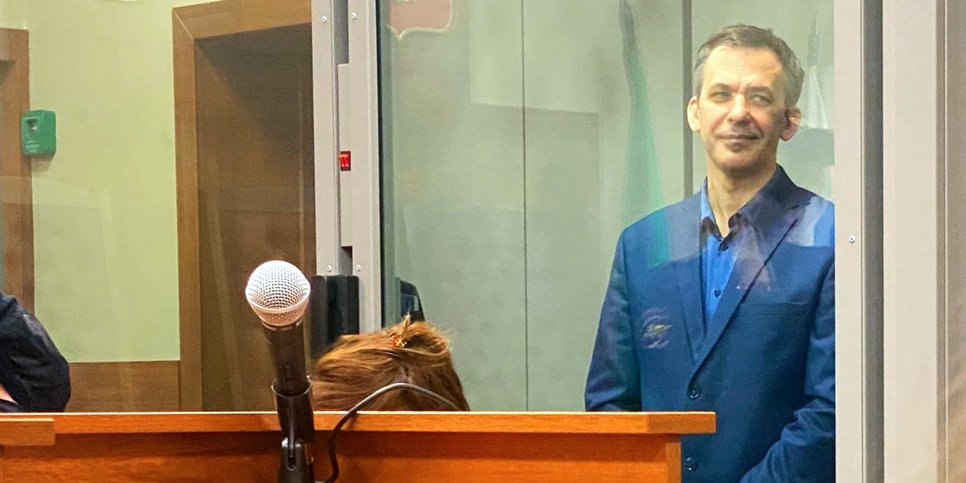Court in Kazan gave Konstantin Sannikov, a Father of Four, 6.5 Years in a Penal Colony for Reading the Bible
TatarstanOn February 15, 2023, the Sovetskiy District Court of Kazan sentenced Konstantin Sannikov to 6.5 years in a penal colony. For conducting peaceful religious services of Jehovah's Witnesses, the court found him guilty of extremism.
Several secret witnesses testified in the Sannikov case. According to the defense, their statements did not correspond to reality and indicated personal hostility toward Jehovah's Witnesses. Also Judge Marat Khaertdinov noticed this: at one of the hearings he stated that the witness was clearly trying to slander the defendant.
“There is no enmity, no hatred, no violence, no calls for them in my actions,” Konstantin emphasized in his final statement. Commenting further on the prosecution's arguments - audio recordings of religious services, books seized during the search, and testimonies of witnesses - Sannikov noted that they simply prove his religious affiliation. “I will continue to profess the religion of Jehovah's Witnesses, since the Russian Federation has not banned anything that I have just listed,” the believer said, concluding his statement.
Throughout the preliminary investigation and trial – for more than two years – Konstantin has been in a detention center, where he was placed two days after the FSB initiated a criminal case against him under part 1 of Art. 282.2 of the Criminal Code of the Russian Federation (organizing the activity of an extremist organization). The believer maintained communication with his wife, Irina, and their four children with the help of letters. Irina told how her husband found a way to support her, even while in the detention center: “He often sends me cute cards and flowers through friends. On our wedding anniversary, the doorbell rang and the courier handed me a huge bouquet of my favorite white chrysanthemums. There was a note in the flowers: “Irishka, my dear, although I am far away, mentally I am always there. I fulfill my promise - I send a bouquet of white chrysanthemums. Love you!"".
In the detention center, Konstantin's chronic cardiovascular and abdominal illnesses worsened. He bolstered his health with exercise and walks. Letters and parcels from fellow believers from all over the world provided invaluable support.
The European Court of Human Rights ruled that the Russian Federation “must take all necessary measures to secure the discontinuation of all pending criminal proceedings against Jehovah's Witnesses... and the release of all Jehovah's Witnesses in custody” (§ 285).
